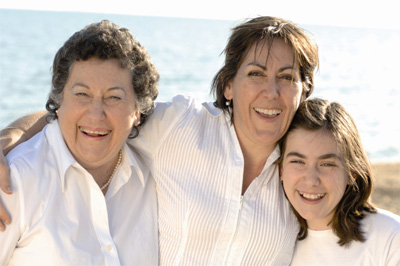Prediabetes affects 2 million Australians

Prediabetes affects 2 million Australians
One in four Australian adults over the age of 25 has either diabetes or a condition known as 'prediabetes'. Although less well-known, prediabetes is far more common, affecting twice the number of people as diabetes. People with prediabetes have either Impaired Fasting Glucose (IFG) - where the blood glucose (sugar) level is higher than normal after fasting for eight hours - or Impaired Glucose Tolerance (IGT) - where blood glucose levels are higher than they should be after ingesting a glucose drink.
For many people, prediabetes is a stepping stone on their way to full-blown diabetes. The risk factors for both are the same: being above a healthy weight, being inactive, having a family history of type 2 diabetes, having gestational diabetes or polycystic ovary syndrome, smoking, having high blood pressure, a history of cardiovascular disease or high blood fats, being Aboriginal or Torres Strait Islander or having a Pacific Islands, Indian subcontinent or Chinese ethnic background - all these factors increase your risk. A third of people with untreated prediabetes will develop type 2 diabetes within five to ten years. It also increases your risk of heart attack and stroke.
The good news is that in most cases, prediabetes can be prevented and managed through simple lifestyle changes such as enjoying a healthy diet, engaging in regular physical activity and maintaining a healthy weight. Those effected can even use a glucose meter to monitor their blood glucose level before it gets to an unreasonable level. A prediabetes diagnosis can act as a warning; telling us to make changes and take care of our health before it's too late. Prof Helena Teede, research director at the Jean Hailes Foundation for Women's Health urges Australian women to heed the wake-up call. "Women need to be encouraged to take action to prevent or delay the onset of type 2 diabetes. Losing just five per cent of your body weight reduces your risk of type 2 diabetes by 60 per cent."
Prof Teede advises anyone who has a history of prediabetes, or thinks they may be at risk, to be proactive about taking care of their health. "Prediabetes has no symptoms, so you need to speak to your health professional about having your blood glucose levels tested if you think you may be at risk. Be aware of the dangers, have regular tests to keep an eye on your blood glucose and take steps to reduce your risk by making lifestyle changes. Good health is a lifelong journey and it's never too late to change your path and reap the benefits."
Saturday 14 November is World Diabetes Day.
Published with the permission of the Jean Hailes Foundation for Women's Health
Tollfree number 1800 151 441 for women seeking further health information www.jeanhailes.org.au
MORE
- Menstrual Period Management
- The Secret to Weight Loss
- Feeling The Pain: How To Tackle Period Pain
- Period Pain and How to Survive It
- Gender Specific Medicine
- Helping Women To Start Those 'Difficult'...
- Michelle Boyd Ellura Interview
- Menopause Does Not Protect Women From Cervical...
- Five Ways to Balance Hormones
- Do You Really Know What Is Going On Down There?
- Do You Know Your Breasts?
- Dr. Stan Goldstein Sexual Health Choices Interview
- Breast Health Decision Question and Answers
- Breast Cancer Treatment Impacts Patients' Sex...
- Bladder Weakness More Common Than Hay Fever
- Belinda Reynolds How To Manage UTI's Naturally...
- Treat Bones Like Breasts
- Mammogram Technology
- Soodox for Women
- Chlamydia Most Commonly Reported STI In Australia
- Time For Reflection Is Great For Mental Health



